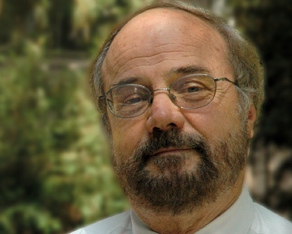
LOS ANGELES -- John Duncan, a historian and former director of the UCLA Center for Korean Studies, is one of the most admired contributors to the growth of Korean studies in the US.
Over the 30 years he taught at UCLA until 2019, he researched and wrote about mainly the Joseon era, trained a generation of Korean studies scholars and built bridges between academics in the US and Korea. In honor of his contributions to the study of Korea, he received the Korea Foundation Award in 2009 and the Yongjae Award in 2017.
“My generation (of Korean studies scholars in the US) was very active in collaborative projects with Korea. Scholars at UCLA have worked together with their peers at Yonsei University and Korea University,” said the professor emeritus in an interview with The Korea Herald on the UCLA campus.
“There were leaders of various groups that tried to bring scholars from Korea, US, Japan, China and throughout the world. We did joint research projects, and sent Ph.D. students to study under Korean professors for a year. The University of Hawaii was very active too. I think it’s happening a little less now, and I regret that.”
Duncan said it’s one thing to sit in the US and read a Korean scholar’s thesis without being in the context, and another to attend academic conferences in Korea and have frequent contact with scholars in Korea, because the latter gives a better idea of critical awareness and views of history.
Language, however, posed a significant problem, as there were only a few American scholars of Korean history who could write and present a paper and do Q&A sessions in Korean.
Duncan, who speaks impeccable Korean, said he was only able to do it because he did his undergraduate in Korean history at Korea University and spent six years in Korea after being stationed there as a member of the US Army in the late 1960s.
With professor Ross King at the University of British Columbia, Duncan started a program for “academic Korean” at Sungkyunkwan University, targeting graduate students, researchers and professionals who are highly proficient in English and have a certain level of command in Korean. They worked for nearly 10 years to build the program, and it began with UBC, UCLA, Harvard University, the University of Southern California and the University of Michigan participating as members.
In the US Army, Duncan was attached to the US 2nd Infantry Division, and was spending most of his time along the Demilitarized Zone when the USS Pueblo was attacked and captured by a North Korean vessel in January 1968, and when Pyongyang stepped up its dispatch of armed infiltrators to the South.
Despite being in the army during such hair-raising times, he grew interested in Korea because its culture at the time was not individualistic.
“Koreans had a very strong family consciousness. I liked that,” he said. "At that time, it was something very different."
His colleagues suggested that he finish his undergraduate studies in Korea, and recommended Korea University, where a majority of the students at the time were from provinces outside the capital. They said he would get to know a broad spectrum of Korean society there.
According to Duncan, who wrote “The Origins of the Choson Dynasty” in 2000, it wasn’t until the 1990s that young scholars in the US developed an interest in modern, contemporary Korea. The Joseon era is considered premodern history.
With the exception of Carter Eckert at Harvard University and Michael Robinson at the University of Southern California, who both wrote dissertations on and began teaching modern Korea in the 1980s, no one in the US studied modern or contemporary Korean history back then, he said.
“People did political science, not history,” he said, noting that it was partly because there were few people even in Korea who studied modern or contemporary Korean history.
When he was an undergraduate at Korea University in the early 1970s, courses on Korean history ended with Japan’s annexation of Korea in 1910. There was always some work being done on Korea’s independence movement, but not much, he said.
“Another, more fundamental reason is that people who were doing history of what was then called 'third-world countries' were primarily interested in premodern history. It was just a trend, and I think it was also because of the Cold War,” he said.
Currently, Duncan is involved in a number of projects, including one on public intellectuals during the decades of authoritarian government in Korea such as Ham Sok-hon, Paik Nak-chung and Kang Man-gil; writing a chapter on the early Joseon era for the Cambridge History of Korea; and editing several translations of texts from the Goryeo Kingdom and Joseon era.
Global interest in Korean popular culture and growing demand for Korean studies is a very interesting phenomenon, Duncan said.
“There was a time people were very interested in Japanese culture like anime. Many colleagues in Japanese literature and history first developed an interest in Japan because of that, and they went to Japan to study,” he said.
“Same thing is happening now in Korea. (The popularity of Korean pop culture) already lasted longer than most people thought. There is a vitality in Korea that makes things happen.”
- - -
“Korean Studies Beyond Korea” explores the current landscape of Korean studies through interviews, in-depth analyses and on-the-ground stories told from diverse world areas. Funded by the Korea Press Foundation, this series delves into the challenges and opportunities facing the field as Korea's rise as a cultural powerhouse has drawn interest from scholars, researchers and leaders from around the globe. – Ed.



![[Weekender] How DDP emerged as an icon of Seoul](http://res.heraldm.com/phpwas/restmb_idxmake.php?idx=645&simg=/content/image/2024/04/25/20240425050915_0.jpg&u=)

